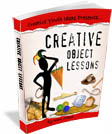So I bought her for 15 shekels of silver and five bushels of barley (Hosea 3:2, HCSB)
Amos was the prophet of God’s wrath in the Old Testament; Hosea by contrast is the prophet of love. Amos addressed the conscience; Hosea addressed the heart. The truth came to Amos in the desert; it met Hosea on his own doorstep.
He married a girl at God’s command, courted her, loved her, lost her. Gomer his wife left him for a life of prostitution. In the midst of a supremely painful and personal tragedy, Hosea suddenly saw it: What Gomer was to him, Israel was to God. Israel was God’s bride. A covenant had been made and God was faithful. His love was steadfast and his commitment unbroken.
But Israel, like Gomer, was adulterous and unfaithful, playing the harlot with her Baals. Then, just when judgment seems imminent, God says something unexpected and unthinkable to Hosea: “Go, show your love to your wife again, though she is loved by another and is an adulteress. Love her as the LORD loves the Israelites, though they turn to other gods… ”
Hosea’s prophecy is the record of perhaps the most difficult assignment ever handed down to a prophet. His is some of the saddest language ever spoken. As fiery as Amos in denouncing the sins of his day, he stood on higher ground when he pictured God as waiting (as he had waited for Gomer) for Israel to come home. Apparently Gomer was on her own for a while, and, needing to support herself, sold herself into slavery or became the mistress of another man.
Hosea had to pay to get her back, perhaps even having to bargain for her. He pays the Old Testament price of a slave-thirty shekels of silver. It may be that Hosea was not a wealthy man; he pays half in cash and half in barley. Gomer is no longer worth much to anybody except Hosea, but he loved her just as God loved Israel.
What must it do to God’s heart when we abandon him and his love for something or someone else? But God will not give us up. No matter how low we sink, God is willing to buy us back. If you want to understand the gospel of Jesus Christ, his view of God, his love of the human race, read Hosea. Love bears all things, believes all things, hopes all things, endures all things (1 Corinthians 13:7). God and Hosea: loving, forgiving, waiting.
Do you know someone who needs to come home? Some people fear they are no longer welcome at home. But God always leaves a light on. Jesus would make a similar point to his generation with the story of a prodigal son and a waiting Father. God is waiting.
 MORE IDEAS? See “Creative Object Lessons”
MORE IDEAS? See “Creative Object Lessons”
200 page e-book that explains everything you need to know when planning your very own object lessons. It contains 90 fully developed object lesson ideas and another 200 object lesson starter ideas based on Biblical idioms and Names / Descriptions of God.
